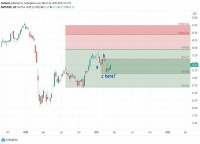|
By: Bailey McCann, Private Equity Strategies If you read the headlines, private equity fundraising seems mostly dead. However -that’s not the case say two dealmakers. Private Equity Strategies spoke with Chris Hastings, Principal at Berchwood Partners, a placement agent and Augustine “Gus” Long, Partner at Stanwich Advisors, an independent, boutique investment bank that focuses exclusively on providing advisory and fundraising services to private equity partnerships globally about trends they see in fundraising right now. “The market isn't like 2005-06 when the demand and capital were more plentiful, but this is still a healthier market than post the downturn,” Long says, noting that there are still opportunities provided real evidence of pedigree and experience are there. “You're seeing a flight to larger funds, or a flight to quality in a lot of places right now, because there is a perception that with a brand name you'll have less risk. On the smaller side - funds under $2bn - you have a harder time but there is still interest in certain geographies, distressed, energy, real assets, turnarounds,” Hastings says. Both men note that pedigree is important for first time funds. GPs that have many years of experience in all facets of private equity can still raise a fund, but that experience is key. Former CEOs or other new entrants who decide they want to start a fund without a private equity background are going to have a steep uphill climb. “I would invest with a first time fund if the suitable pedigree was there, but I think it is a lot harder, if not impossible, if they are also first time investors without an attributable track record,” Long says. Emerging Markets Hastings says that if the background is there, demand is strong especially in the middle to small end of the market where financing can be harder to come by. In areas like Latin America, and Africa, funds are also finding opportunities to get into growing economies early on. “There is interest in Mexico, Colombia, and other Latin American countries. There are also interesting opportunities in Africa, and we are trying to get ahead there, we've sent some people and are working with others on the ground to build relationships and get a sense of the players.” In these areas, fundraising and investing take on some unique nuances that investors should be aware of. Historically, especially in Latin America, privately held companies are loath to allow private equity funds to have controlling stakes, which means funds and investors need to be flexible. “If you limit yourself to control-only stakes in Mexico or other parts of Latin America you're going to limit the universe of opportunities dramatically. But if you're willing to look at minority stakes with advantageous capital structures or effective control the opportunity set is much larger,” Long explains. Being able to invest more than once is also important. “Particularly with respect to emerging markets, people like to see that they can recycle capital into multiple funds. Given the labor intensive nature of diligencing these opportunities, it is harder to make the case for one time investments,” he notes. US & EU Trends In developed markets like the US and EU, activity in secondary markets is on the rise, as disrupted cycle funds are more common, but according to Long, fundraising for fresh vintages still hold value. “It is harder to build a well-diversified portfolio by going only with secondary transactions, but there is a very strong economic case to be made for accessing a fund through the secondary market if the opportunity is there,” he says, suggesting that both options can have a place in the portfolio. New standards like ILPA have also made their way into the market more quietly than some initially expected. “LPs can use ILPA guidelines to get some leverage on fund terms, although that's still going to be more prevalent with LPs who are making the larger commitments. I think the fear that ILPA was just going to be collective bargaining for LPs just hasn't turned out to be true,” Long says. Both men say that overall, firms need to show that they can execute on their core focus area if they want to keep raising money. They note that LPs looking at all parts of the globe are faced with many opportunities, and won’t have to rush to get in on good opportunities, instead, they’ll be taking a close look at principals and terms when they make decisions.
| |
|
This article was published in Opalesque's Private Equity Strategies our monthly research update on the global private equity landscape including all sectors and market caps.
|
Private Equity Strategies
Dealmakers Q&A: Private Equity Fundraising Isn’t Dead Yet |
|





 RSS
RSS










